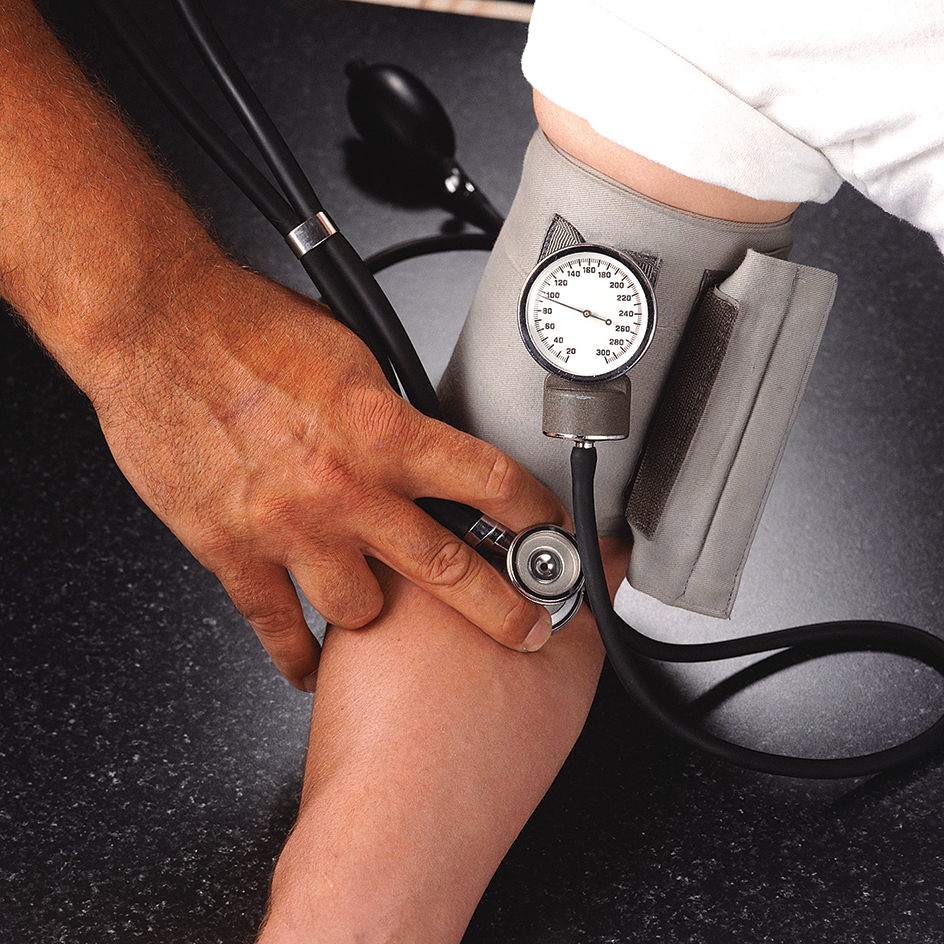Hypertension is the medical term for the disease commonly called high blood pressure. A blood-pressure measurement includes two numbers. The numbers are usually written as a fraction. The normal blood pressure for an adult is below 120/80. Hypertension is diagnosed when one or both numbers are elevated on several separate occasions. In a healthy adult, a reading is considered abnormal if the first number is higher than 140 or the second number is higher than 90. Among people at risk of heart disease, doctors consider blood pressure above 130/80 to be hypertension. Physicians use the term prehypertension to describe a condition in which the first number is from 120 to 140 and the second number is from 80 to 90 among people not at risk for heart disease. People with prehypertension have an increased risk of developing health problems related to high blood pressure. For more information about the numbers given above, see Blood pressure .
Loading the player...Blood pressure
There are many varieties of hypertension. They range from mild to severe. Extremely high blood pressure—above 180/120—is sometimes called a hypertensive emergency or hypertensive crisis. It can lead to many serious health problems, including swelling in the eye and vision loss. Blood pressures that remain high over time can also increase the risk of heart attack, stroke, kidney failure, and death. People experiencing hypertensive crisis require immediate medical attention.
Many people of all ages suffer from hypertension. In the United States, about half of all adults and 80 percent of those over age 65 have blood pressure above 130/80 and other risk factors for heart disease. African Americans develop hypertension about twice as often as other Americans. Medical experts are not certain why hypertension affects a higher percentage of African Americans. Many believe that both genetic (inborn) and environmental factors play a role.

Causes.
Some cases of hypertension result from other illnesses. Such illnesses include kidney disease or overactive adrenal glands. But in the vast majority of cases, physicians cannot determine the cause of a patient’s high blood pressure. Physicians call such cases essential hypertension. People whose parents have hypertension are much more likely to develop the ailment than those whose parents have normal blood pressure. Obesity (excess body fat), stress, and smoking may trigger hypertension in people who have inherited this tendency. Some studies indicate that for many people, too much salt in the diet can lead to high blood pressure. These conditions and lifestyle habits may also make the disease worse in people who already have it.
Physicians know that an enzyme called renin plays an important role in regulating blood pressure. Renin is secreted by the kidneys under certain circumstances. Such circumstances include a drop in the pressure of the blood flowing through the kidneys. Renin causes the formation of a chemical substance called angiotensin. Angiotensin raises the blood pressure by causing the blood vessels to constrict (narrow). Angiotensin also stimulates the adrenal glands to secrete the hormone aldosterone. Aldosterone causes the body to retain sodium. Retaining sodium, in turn, causes the body to retain fluids. The extra fluid increases the volume of the blood, further raising the blood pressure. After the blood pressure has risen to a certain level, the kidneys normally stop secreting renin. But in many people with essential hypertension, something interferes with this controlling system. In such cases, the blood pressure remains elevated. When the pressure is high inside the heart, the heart releases a hormone called atrial natriuretic factor. This hormone helps lower the blood pressure by inhibiting the secretion of renin and aldosterone.
Effects.
In most cases, hypertension produces no symptoms until dangerous complications occur. For example, it can cause an artery in the brain to burst, producing a stroke. High blood pressure also forces the heart to work harder, and so it may cause a heart attack. The disease can cause kidney failure by reducing the flow of blood to the kidneys. In addition, high blood pressure is a major cause of arteriosclerosis (hardening of the arteries).
Treatment.
People of all ages should have their blood pressure checked frequently. Many cases of mild hypertension can be controlled by weight reduction, avoiding salty foods, and increased exercise. Physicians can control almost all other cases with drugs, including some medications that reduce the secretion of renin and aldosterone. The more serious consequences of hypertension, such as heart attacks and strokes, can be prevented by treating high blood pressure before it reaches dangerous levels.
